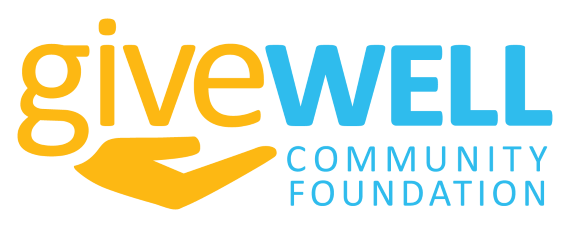Tax trends to watch, unrestricted giving, and spotting client opportunities
Five tax law developments impacting charitable giving
For many of us, 2023 was an active year and 2024 is projected to be dynamic as well. We understand that charitable giving topics may not always be at the top of your reading list but we’re here to help! GiveWell Community Foundation’s professional staff is committed to keeping you up-to-date on what you need to know. Here’s a recap of five key developments last year that are most certainly worth keeping an eye on in 2024.
NIL Collectives
The IRS has had a lot to say lately about NIL collectives. In addition to offering insights for athlete recipients of NIL (name, image, and likeness) dollars, the IRS has also issued guidance pertaining to organizations that help develop NIL opportunities for athletes, suggesting that the activities of these entities, known as “collectives,” may not qualify as “charitable.” This development could be problematic for your clients who believe that their contributions to NIL collectives will qualify for a charitable tax deduction.
Donations of Cryptocurrency
It’s still a thing! At least a few of your clients are likely still invested in cryptocurrency, despite the whirlwind in that industry over the last year or so. You should know that in early 2023, the IRS published guidance confirming that a taxpayer cannot take a charitable deduction for a gift of cryptocurrency over $5,000 without submitting a qualified appraisal. Cryptocurrency, in the eyes of the IRS, is treated as property, not cash. And it is not a security, either. Note that the IRS also said that a price quotation from a cryptocurrency exchange (such as FTX) doesn’t count; a qualified appraisal is still required.
Charitable Act
Senate Bill 566, which is still pending, was introduced in early 2023 to address what is sometimes called the “universal charitable deduction,” meaning that even taxpayers who do not itemize their deductions would be able to claim a charitable deduction, potentially in an amount up to one-third of the taxpayer’s standard deduction. Keep an eye on this; the bill enjoys broad support and, if it becomes law, could be a real perk for both your clients and the nonprofit organizations they care about.
Exempt Purpose
It seems that at least once a year, the IRS issues guidance on what it means for an organization to be organized for an exempt purpose under Section 501(c)(3). In Private Letter Ruling 202349014, we are once again reminded that personal activities that have no direct public benefit simply will not be viewed by the IRS as exempt. While private letter rulings are of course not binding, they are nevertheless useful tools to provide to a client to show specific examples of what the IRS considers to be non-exempt. Estate planning attorneys and CPAs tell us that every few months, a client comes to them with an idea for starting a nonprofit, and it’s easier to tell a cautionary tale than it is to recite Internal Revenue Code sections.
Proposed Regulations
Proposed regulations issued by the IRS are not binding, and often they are revised – or even shelved or canceled entirely – before they go into effect. Still, the professional staff at GiveWell Community Foundation is always keeping an eye out for these and other forms of IRS rulemaking that could potentially affect your work with your charitable clients. A recent example of this type of IRS activity is a set of proposed regulations concerning donor-advised funds, issued in November 2023. The public comment period ends in mid-January 2024, and then the IRS will take time to review the comments, so we won’t know anything definitive for quite some time. For those who are interested, we like the detail provided in this podcast series on the topic. You can take a leisurely walk and learn everything you want to know about what’s being proposed. And of course, you’ll hear from us when (and if) the proposed regulations ever go into effect and what to do about it.

Unrestricted giving, the trust factor, and why it matters to your clients
The gifts Americans give to charitable causes every year provide critical support for more than a million organizations that are helping sustain the quality of life in our communities. Philanthropy equates to 2% of GDP – that’s a little more than the home health care services sector. And, trust is an increasing must-have prerequisite before your clients decide to give to an organization, increasing from 63.9% to 69.9% between December 2021 and December 2022.
With trust in charitable organizations driving so many giving decisions, it’s important for you and your clients to be aware of the GiveWell Community Foundation (GWCF)’s role and commitment to stewardship. Every day, the professional staff at the Community Foundation works with our board of directors, civic leaders, and nonprofit organizations to identify and understand the areas where people in our community need the most help.
Today, the most pressing needs might be for food or emergency shelter from chilling temperatures. Tomorrow, our community might need scholarships for underserved yet promising students, or investments in the overall education system to improve qualifications of our talent pipeline. Indeed, the needs of our community are ever-changing. GWCF has its finger on the pulse of the community’s top needs and priorities and the best way to address them. Through its convening power, community knowledge, and collaborative partnerships, GWCF is an unparalleled resource to make our community better for everyone.
As you talk with your clients about their philanthropic plans, keep in mind that many individuals and families establish multiple funds at the Community Foundation to meet their various charitable giving needs. A family might establish a donor-advised fund to organize their regular annual giving, making it easy to track gifts of appreciated stock and support for a large number of nonprofit organizations. And, this family might also establish an unrestricted fund, a designated fund or make gifts to existing funds that are specifically designated by GWCF and its board of directors to address the most critical needs of our community.
Whatever methods your clients choose to get involved, you’ll know that you can trust GiveWell Community Foundation to make a lasting difference in our community and beyond.

Big gifts, bullish portfolios, and kids who move away
Take a few minutes this month to reflect on your client list for three common scenarios and related opportunities for charitable giving solutions:
1. Clients who made significant charitable gifts at year-end.
You’re probably aware of at least a few clients who increased their charitable giving at the end of 2023. Perhaps you worked with a client to establish a donor-advised or other type of charitable fund at GiveWell Community Foundation (GWCF), or maybe you helped a client structure a Qualified Charitable Distribution to a field-of-interest or designated fund at the Community Foundation. Now that the dust has settled on year-end planning activities, go back to these clients to find out more about their overall philanthropic plans. You may discover that a client would like to work with you to update their estate plan to include a bequest to their fund at GWCF, set up a charitable remainder trust with highly-appreciated stock, or proactively plan their charitable gifts for 2024 to get a jump on tax strategies.
2. Clients whose stock portfolios have rallied.
2023 brought good news and record highs for the stock market As always (and perhaps especially now), giving appreciated, publicly-traded stock to charitable organizations is a highly effective tax strategy. This is because capital gains tax is avoided when your client transfers long-term, marketable securities to a fund at GWCF or other 501(c)(3) public charity. The client is typically eligible for an income tax deduction at the fair market value of the securities, and when the nonprofit sells the securities, the nonprofit does not pay capital gains tax. This is a win-win for your client and the charity. Consider those clients who are holding long-term stock positions that have appreciated substantially since they bought them, especially with the market’s latest rally. Remember that GiveWell Community Foundation is readily available to receive publicly-traded stock allowing proceeds to be added to your clients’ funds at the Community Foundation, for use to benefit nonprofits and charitable causes that matter to them.
3. Clients whose children have moved away.
Children of affluent parents tend to move away. This means many of your clients may be seeking ways to stay in close communication with their children. Remember that while the Community Foundation can help your clients maximize the impact and tax benefits of their local giving, we are also very geographically flexible. This means, for example, that your clients can use their donor-advised fund at GiveWell Community Foundation to support 501(c)(3) organizations across the country, including in communities where their grown children are living. When you demonstrate your interest in your clients’ charitable giving priorities, you not only are strengthening your client relationships, but you’re also helping clients strengthen relationships with their children.

The professional staff at GiveWell Community Foundation is a resource and sounding board as you serve your philanthropic clients. We understand the charitable side of the equation and are happy to serve as a secondary and trusted source as you manage the primary relationship with your clients. This newsletter is provided for informational purposes only. It is not intended as legal, accounting, or financial planning advice.
Ready to get started?
You know your clients. We know philanthropy. Together we can ensure your clients make the best decisions for making a difference in the community.

Lori Martini
Vice President/CPO
863-683-3131
lmartini@givecf.org
